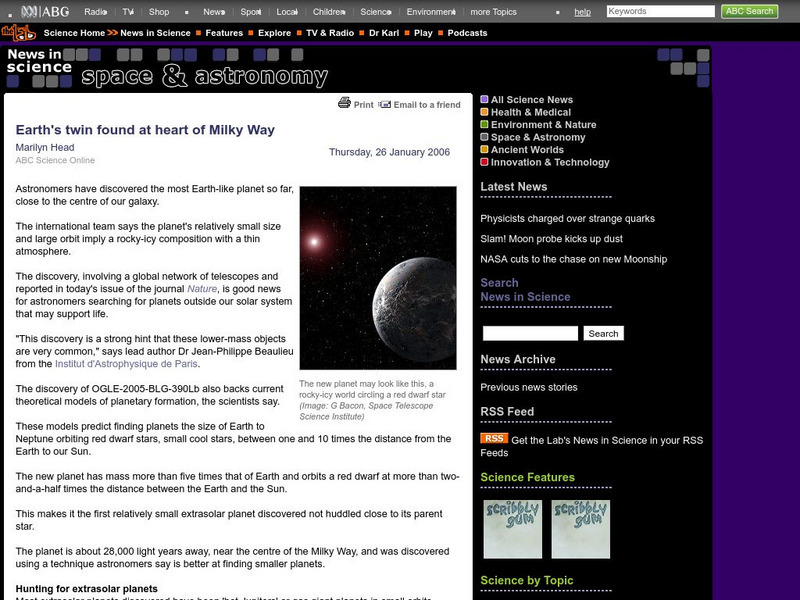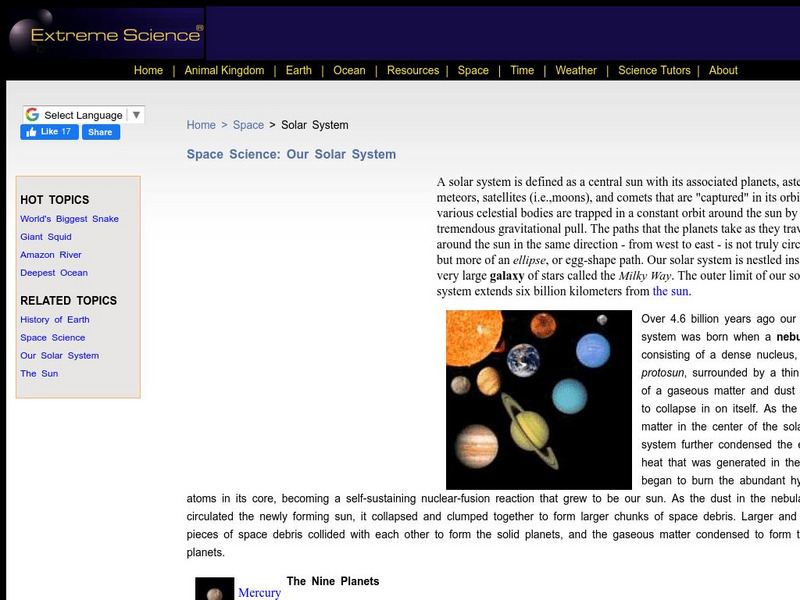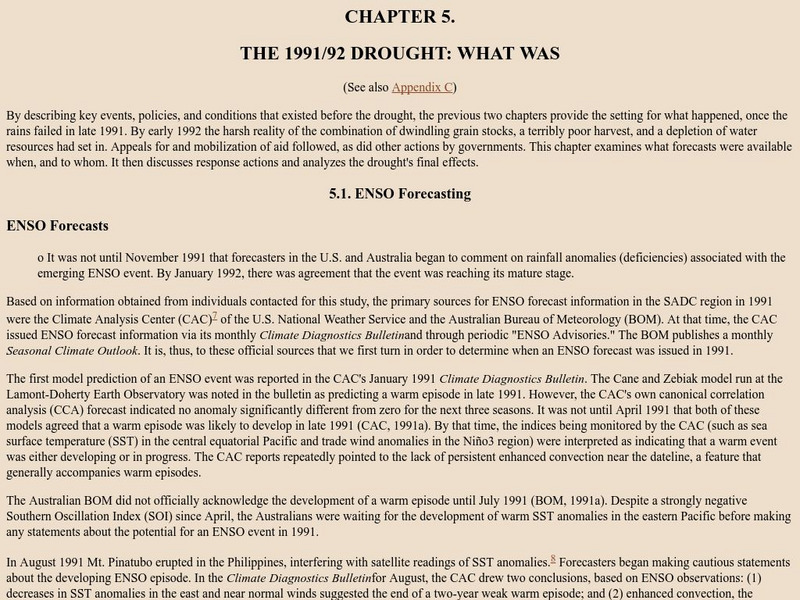CK-12 Foundation
Ck 12: Earth Science: Climate Change in Earth History
[Free Registration/Login may be required to access all resource tools.] Traces changes in Earth's climate through Earth history, especially in the past 2,000 years.
NASA
Nasa: Goddard Institute for Space Studies: Time on Mars
This site provides a Java-based program called Mars24. You can download this to your computer to keep track of time on Mars.
BBC
Bb Ci Space: Earth
The BBC provides a general overview of the planet Earth. Content includes statistical information, a focus on the four seasons, moon information, and more.
Australian Museum
Australian Museum: Dating the Earth
How do scientists know how old the Earth is? What is radioactive dating? Are there other dating methods? Get the answers to these questions and others at this site presented by the Australian Museum Online.
Alabama Learning Exchange
Alex: Our Restless Planet
This unit will use demonstrations and student examples to help students gain an understanding of rotation, revolution, and orbit. Through hands-on activities students will explore the concepts of day and night. Technology will be...
Alabama Learning Exchange
Alex: The Sun and the Earth
The students will understand the relationship between the Earth and the sun and how this relationship affects observable phenomena on Earth, such as the seasons. The activity will help students learn about these concepts and will...
Alabama Learning Exchange
Alex: Earth: We're in It Together!
In this lesson from "The Friends of Auntie Litter", (www.auntielitter.org), conservation and describing ways to protect the Earth will be explored. Students will also create a mural of ways to protect our planet. This lesson is one from...
Khan Academy
Khan Academy: Web Links
Web links to explore information about the solar system and Earth.
Khan Academy
Khan Academy: Quiz: What Was Young Earth Like?
A five question quiz covering the topic of early Earth. The quiz is multiple choice.
CK-12 Foundation
Ck 12: Earth Science for Middle School
This digital textbook covers core earth science concepts and includes interactive features, real-world examples, videos, and study guides.
Khan Academy
Khan Academy: A Flat Earth
An article reviewing over how measurements are made for objects in the solar system.
PBS
Pbs Learning Media: Earth's Systems: The Water Planet
Observe different forms of water and how it covers about 75 percent of Earth's surface in this media gallery captured by NASA and the U.S. Geological Survey (USGS). Use the satellite and ground images in this resource to enhance student...
Howard Hughes Medical Institute
Hhmi: Biointeractive: Understanding Global Change
Students will build models that explain how small changes in the Earth system's components and processes can produce measurable global effects.
University of Texas at Austin
The University of Texas Mc Donald Observatory: Earth
Learn interesting information about the Earth, the largest of the "terrestrial" planets.
CK-12 Foundation
Ck 12: Biology: Recycling Matter Study Guide
Review some of the cycles that recycle matter through Earth's biospheres.
Science Buddies
Science Buddies: How Big Are the Planets in Our Solar System?
This activity explores the relative size of the eight planets that circle around the Sun.
Science Buddies
Science Buddies: Warm in the Sun
Do you think natural materials also heat up in the sun, or only man-made materials? Do this activity to find out.
NASA
Nasa Space Place: All About the Moon
Learn all about the moon, what makes it glow, and its phases. Includes some exciting images.
Indiana University
Indiana University: Nature of Science Lessons
This list of nature of science lessons from the Indiana University includes three links to lessons under the heading "Realm and Limits."
Australian Broadcasting Corporation
Australian Broadcasting Corporation: News in Science: Earth's Twin Found at Heart of Milky Way
From ABC News in Science, Marilyn Head's article centers on research behind the discovery of the planet in the Milky Way which most closely resembles the planet Earth.
Extreme Science
Extreme Science: Space Science: Our Solar System
Read about our solar system and its formation over 4.6 billion years ago. Find out about the planets, asteroids, meteors, satellites, and comets. More in-depth planet background can be accessed through links.
NASA
Nasa: Io: Overview: Volcanic Moon
Find out about most volcanically active world in the Solar System, Jupiter's moon named Io.
PBS
Pbs Learning Media: Defying Gravity
Students are asked how acceleration, mass, momentum and velocity are involved in mountain boarding. [0:32]
University Corporation for Atmospheric Research
Ucar: The 1991/1992 Drought
This site from the University Corporation for Atmospheric Research offers information on drought and global climate conditions, with an explanation of the trade winds.















